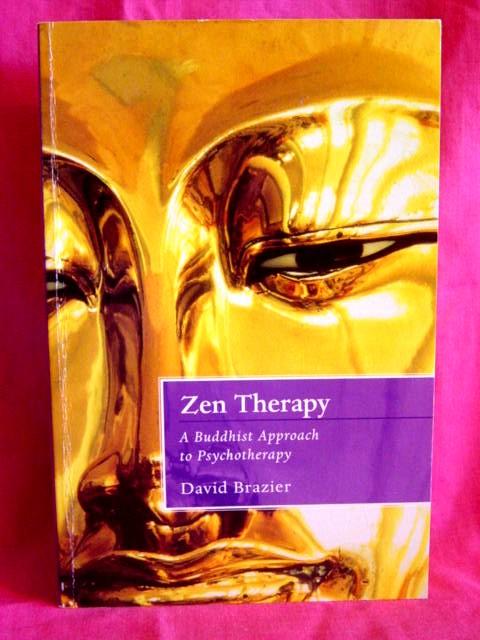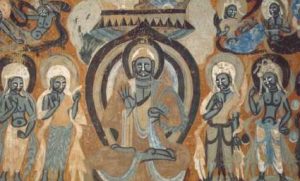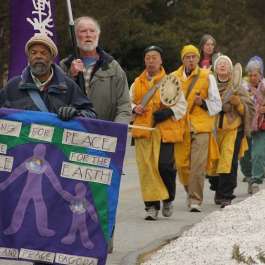A long time ago, I borrowed a book by David Brazier, who is known in the UK as a Pure Land counsellor and therapist. This book was written fairly early on during his pastoral career, and it’s called simply “Zen Therapy.” I greatly admire it and think it hasn’t lost its authority even in 2011. It really highlights, for me, the vitality of the Endless Knot: the union of discerning wisdom and warm, unclinging compassion in helping patients recover from mental illness. Here are some passages that I felt were particularly inspiring and insightful.
“Shunyata is innocent. A child picks up an unfamiliar object and turns it over in his hand. He looks from this side and from that. We can do the same. Pick up a stone. Turn it over in your hand. Become familiar with it. Notice its colour, its contours, its crevices. As you do so, the stone becomes real for you. It becomes something… Thus tenderness grows. We start to care about the stone. Just like a child, we invest caring in the object. From a materialistic viewpoint this is absurd. The rock has no monetary value and minimal utility. But is this not precisely the nature of caring? We do not care in order to get something back… We simply appreciate the thing itself. In some ways a stone is particularly easy to care for since it asks nothing in return” (p. 206).
“Allison told the therapist, at the end of a session, that she was going to commit suicide. The therapist was immediately filled with strong feelings and said that he would not allow her to do any such thing: that, if necessary, he would not let her leave his office. She protested that it was none of his business whether she killed herself or not. He retorted that it now felt like it was very much his business – how could he live with himself if he let her go and she were dead the next day? Eventually she promised not to kill herself before seeing him again and left. Later she told him that this encounter had made a great impression on her because she realized that her being alive made a difference to someone else. She stayed alive that week because she did not want to inflict hurt upon him. In due course she found more reasons” (p. 198)
It is an inspiring book that offers many deep insights and thought-provoking challenges. It is also more sophisticated in its depth of analysis than many other books about Buddhist spirituality. I would love to see more of these kinds of books in future.















